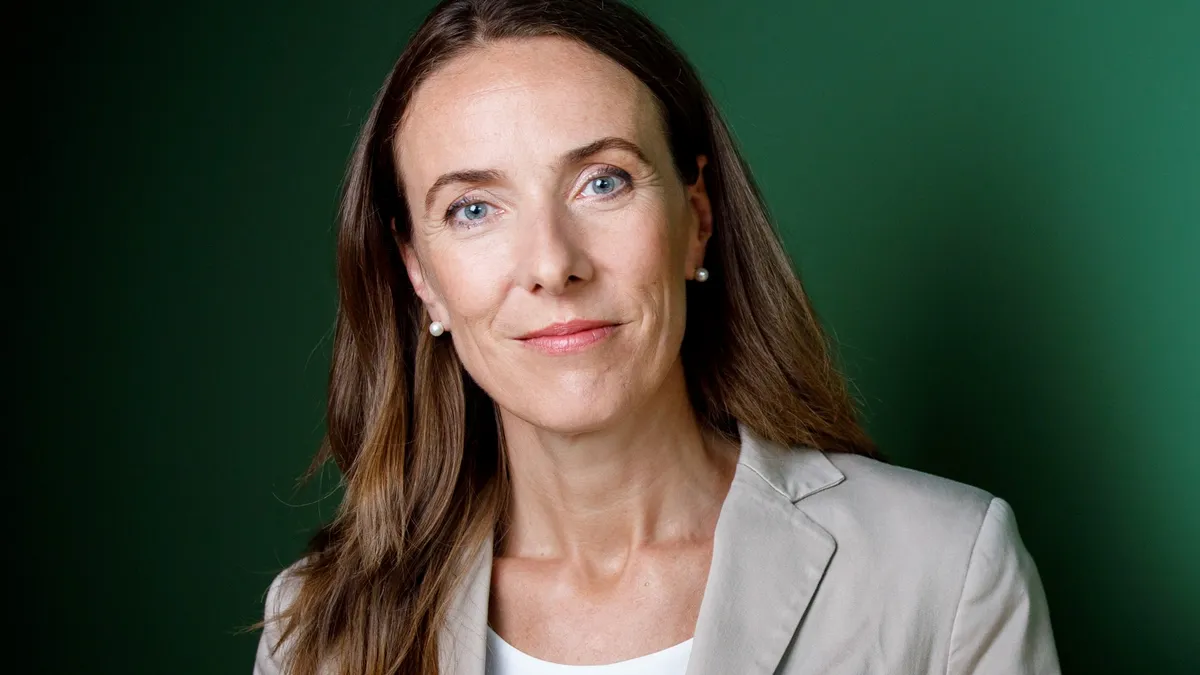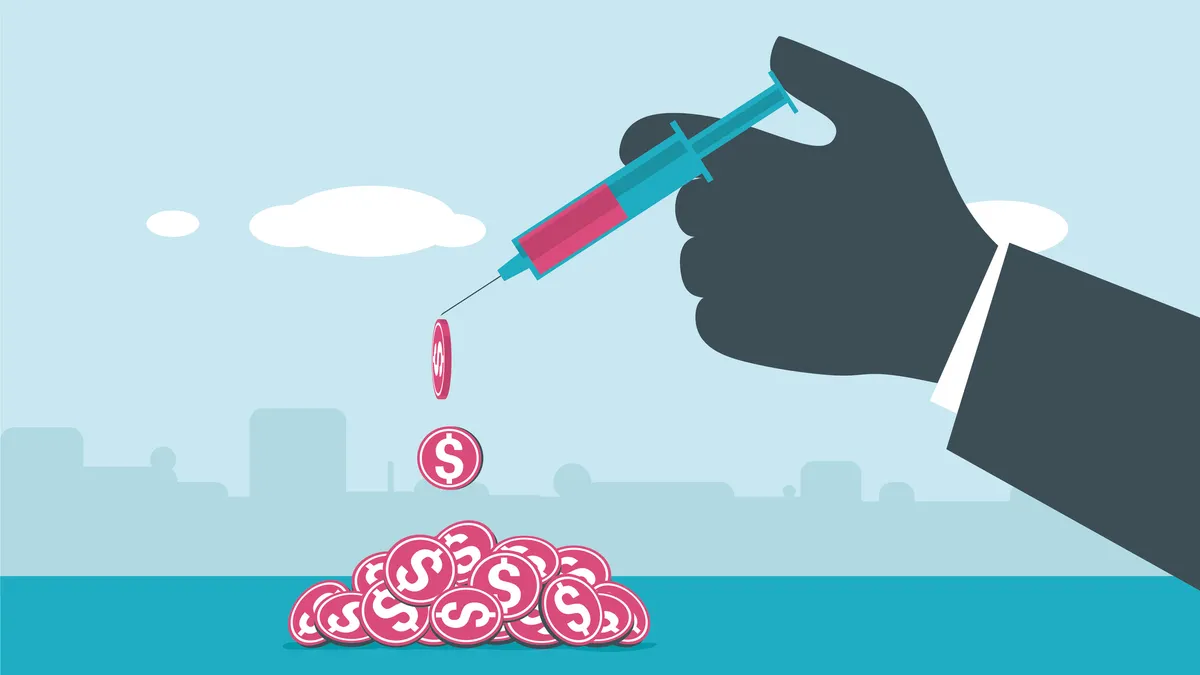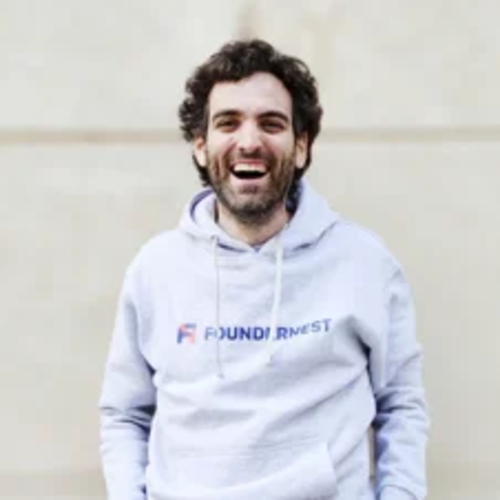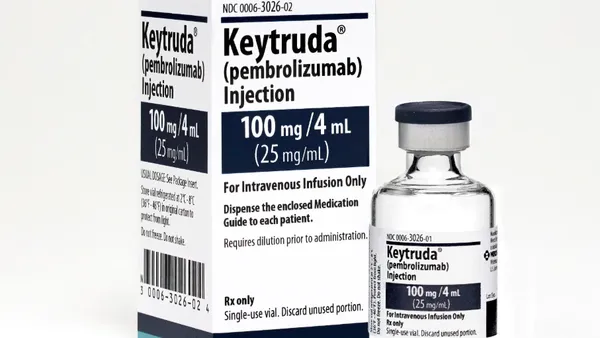At the age of 15, Chantal Friebertshäuser made a major decision that sounds unusual, even for the most precocious teenager: She decided to pursue a global career in the research-based pharmaceutical industry.
She had just read a magazine profile of Lindsay Owen-Jones, the then-CEO of L'Oréal, which at the time was not only a cosmetics giant, but had entered the pharma space by acquiring a company that would eventually become Sanofi-Aventis. At the time, Friebertshäuser was torn between her interests and ambitions. She wanted to better people’s lives; loved languages and discovering the world; and became passionate about business after watching her parents run a small company while encouraging their children to think strategically about how it was managed.
She’d considered careers in medicine and education as a foreign language teacher. But in reading about Owen-Jones, she realized she didn’t have to decide. She could pursue it all.
“I realized, ‘Oh, shoot, I don't need to choose,’” she said. “If I go and work in the commercial space in the research-based pharmaceutical industry in a global role, then I will have all I want and all I love combined.”
Over the course of her career, Friebertshäuser has done exactly that while building a global career in the pharma industry, most recently at Merck & Co., where she was human health senior vice president and managing director at Merck Germany. Prior to her 15 years at Merck, she spent a decade in marketing and sales at Eli Lilly.
"If you don’t think of health globally, you will not have the impact you could and you should have."

Chantal Friebertshäuser
Senior VP, commercial, Europe, Middle East and Canada, Moderna
And late last year, she charged into a big new role as Moderna’s senior vice president for commercial operations in Europe, the Middle East, Canada and Australia. Her job reflects Moderna’s focus on broadening its global reach. Before the pandemic, the company was relatively obscure — and now it’s become one of the most closely watched biotechs on the planet.
Now, the company is working to have “people on the ground” as it builds access around the world, Friebertshäuser said.
“Moderna, until two years ago, was only a research and development company, and now with the development of the first vaccine that has been commercialized during the pandemic, and … a big pipeline coming our way, it is more important than ever that we build this organization in the world,” she said.
In addition to its COVID-19 vaccine, Moderna now has 48 mRNA programs, including 38 that are in active clinical trials, and operations in 17 countries worldwide. Among them is its investigational mRNA vaccine candidate for RSV, which was granted breakthrough therapy designation by the FDA in January.
And with manufacturing facilities opening around the world and potential new approvals in the works, Friebertshäuser is part of Moderna’s push to expand its reach.
Targeting viruses without borders
Since taking the Moderna job in December, Friebertshäuser has been on what she calls a “learning and developing tour,” traveling the regions, getting to know major stakeholders and customers, and hearing “directly from them about their challenges, the needs, and how they can consider the collaboration with a company like Moderna moving forward.”
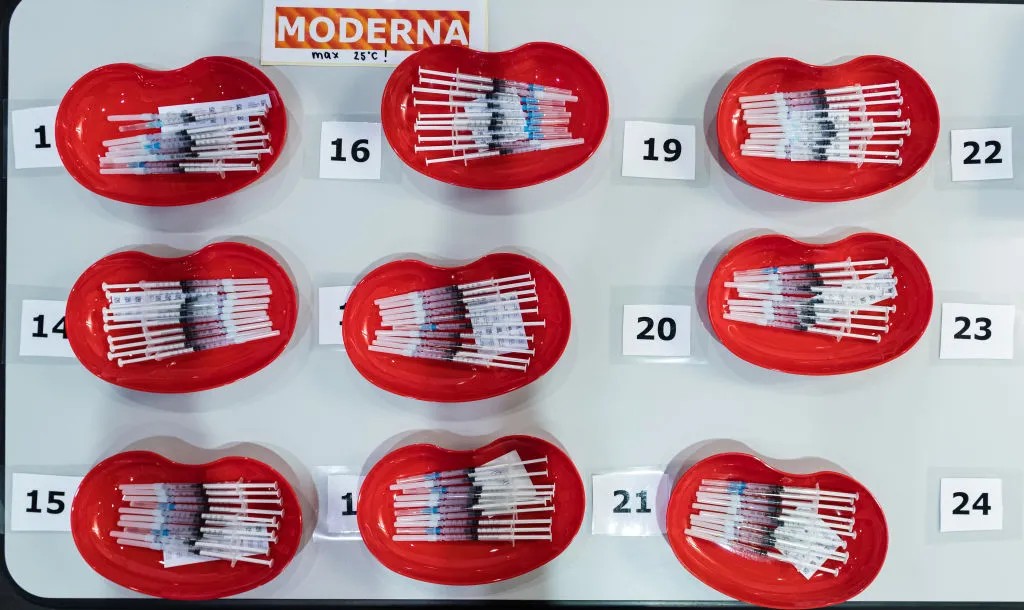
Taking a global approach to health and medicine makes sense to Friebertshäuser on a personal and professional level. Friebertshäuser is French, and her parents were born before WWII, at a time when France and Germany were enemies. Those geopolitical relationships changed after WWII and the Cold War, and when Friebertshäuser was in her early 20s, she moved to Germany and learned the language for her earliest work at Eli Lilly. Now, she’s married to a German man and her children have both French and German nationalities.
Her experience is a micro-version of the modern French-German friendship and illustrates how, with the right leadership, work and intention, the “worst enemies (could) become the best friends and … become the heart of the European Union, the heart of peace on this part of the continent,” Friebertshäuser said.
“I think it's a lesson for life,” she said. “It's for me, in a way, a big lesson of leadership as well.”
During Friebertshäuser’s time at Merck, she was responsible for its HPV franchise and partnered with governments and organizations like the WHO and UNICEF to ensure global access to the world-changing, cancer-preventing vaccine.
“For me, it was not a job. It was like being on a mission,” she said.
She feels that same mission at Moderna because of the company’s mRNA platform.
“The promise of Moderna is to change the world by providing not only access to very different kinds of vaccines and therapeutics but doing that in a way that would make access, by definition, broader, personalized and different,” she said.
She believes that agreeing upon and striving toward common objectives is the key to working with stakeholders from different countries and cultures, and that a global commitment to common health objectives is “very much in the DNA” of Moderna. For instance, she points to the company’s pledge to advance a portfolio of 15 vaccine programs targeting emerging or neglected infectious diseases into clinical studies by 2025, including HIV, tuberculosis, and malaria, as part of its global public health strategy.
“That's exactly the way we would like to deal with every single country or every group of customers: What are common objectives moving forward, and how can we best all participate in that?” Friebertshäuser said.
Governments in the regions where she now works understand they cannot approach health in an isolated way. Moderna, too, is dedicated to developing global partnerships for that reason. It’s a commitment that Friebertshäuser says makes sense, especially in the wake of a pandemic that showed the world, in grim fashion, that “there is nothing but global health.”
“You can close your borders if you want, you can build walls or take them down. It doesn't matter. Viruses know no borders. Bacteria know no borders,” she said. “And if you don't think of health globally, you will not have the impact you could and you should have. Period.”


